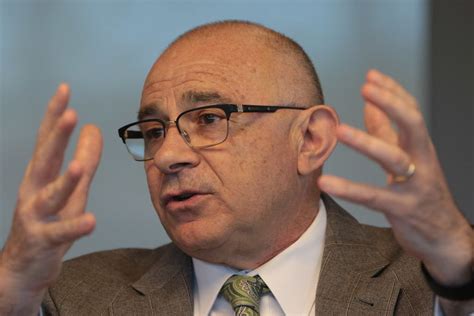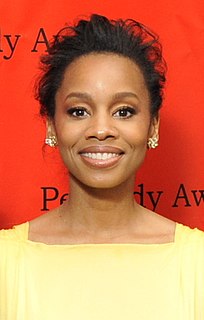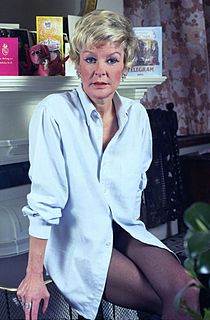A Quote by Nat Hentoff
Clay Felker was then - he had - to his credit, he had created New York Magazine, which was the first of the city magazines that covered the city and gave all kinds of advice and all that sort of stuff. And there were copies all over the country by the time he left. He had, however, a view of journalism that was very much, I must say, like Tina Brown's at The New Yorker. You hit 'em hard, fast, give 'em something to talk about the day after the paper comes out, as contrasted with William Shawn, who gave them something to talk about two or three years from then.
Quote Topics
About
Advice
After
All Kinds
Brown
By The Time
City
Clay
Copies
Country
Covered
Created
Credit
Day
Fast
First
Gave
Give
Had
Hard
His
Hit
However
Journalism
Kinds
Left
Like
Magazine
Magazines
Much
Must
New
New York
New Yorker
Out
Over
Paper
Say
Something
Sort
Stuff
Talk
Them
Then
Three
Three Years
Time
Tina
Two
Very
View
Were
Which
William
Years
York
Yorker
Related Quotes
When I talk about the city, I talk about a city that elevates people, which is the strength of New York. We always had the ability to do that. We had the services to do that: good schools, living-wage jobs. We're moving away from that toward a two-tiered system: a small group of very wealthy people and the rest of the city, poor and working poor.
In 1998, Vanity Fair asked me to write a big piece for them on the 50th anniversary of the New York City Ballet. My life, to a great extent, had been spent at and with the New York City Ballet, and I decided to try it. It was very scary, writing about something I loved so much and had such strong opinions about.
My grandfather was a man, when he talked about freedom, his attitude was really interesting. His view was that you had obligations or you had responsibilities, and when you fulfilled those obligations or responsibilities, that then gave you the liberty to do other things. So the freedoms that we talk about today, the liberties that we talk about today were the benefits that you got from discharging your responsibilities.
I've - that I regret. That was stupid and ignorant on my part. I went to a party as a guest of a friend of mine, a lawyer. And he had a client who I didn't know, except - maybe I'm pretending I didn't know, but he was a big investor in The New Yorker. And as I found out later in a book about The New Yorker, this guy was very unhappy about [Bill] Shawn.He thought Shawn was spending out - spending too much money on writers.
There are roughly three New Yorks. There is, first, the New York of the man or woman who was born here, who takes the city for granted and accepts its size and its turbulence as natural and inevitable. Second, there is the New York of the commuter — the city that is devoured by locusts each day and spat out each night. Third, there is the New York of the person who was born somewhere else and came to New York in quest of something.
Delhi is a very maligned city, and deservedly so. Yet there's something about it. It's a secret city, it doesn't hang out its wares. It's like a very deep river. Floating right up on top are the institutions of contemporary power: government, politics, media, and then there's the bureaucracy, the diplomatic missions. But it's also the city of intellectual debate, of protest, it's the city where people from all over the country converge to express their anger. And then, underneath all that, there's this crumbling, ancient city, a confluence of so much history.
I've had a relatively charmed life. I loved to be out in the city. New York was my town. I've had people come up to me and say, 'You're a great New Yorker. You've given your time and money to so many New York charities. You're a great supporter of the arts. I like some of your movies - and some of your movies suck, actually.'
My first car was kind of sad. My first car was when my parents had completely worn out their Toyota Corolla that they had for 16 years or something. They gave me, for my 19th birthday, this really ancient Toyota. So that was my first car. And I loved it. I thought it was amazing, and I drove it cross-country. It was not aesthetically appealing in any way. It was it fast. It did not handle well, but it lasted forever. I drove cross-country and back, and then I gave it to my sister, and she drove it for another 10 years.
Anything that I'm doing I think I always come at it from an outsider perspective. The first like real front page story that I had for the Times was about how after decades of battles over public restrooms in New York City, effectively chain stores had become the public restroom of choice for New Yorkers, it's sort of a silly little thing, but coming as an outsider, I was like 'Oh this is actually really interesting.'





































